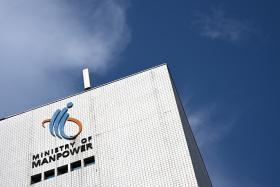Worst to come on employment front: Experts
The worst may be yet to come on the employment front, experts said, following the release of preliminary figures yesterday that showed retrenchments had more than doubled in the second quarter of the year.
They agreed that the job market has not bottomed out amid the uncertainty of the coronavirus pandemic, but that Government measures have gone some way in mitigating the impact.
National Trades Union Congress assistant secretary-general Patrick Tay said in a Facebook post that he expects retrenchment and unemployment figures to continue climbing in the second half of the year, with an uncertain outlook across many industries.
He noted that besides small and medium-sized enterprises, large local enterprises and multinational companies are also impacted with delayed or reduced investments, curtailed production and freezes in global headcount.
"I am particularly concerned that the figures may not reflect the full impact of the (job losses) as I do see and hear of workers being contractually terminated (though with adequate notice pay), older workers not being re-employed, as well as foreign workers on work permit, S Pass and Employment Pass whose passes are not renewed. These do not count towards overall retrenchment numbers," he said.
OCBC Bank head of treasury research and strategy Selena Ling added that the total and resident unemployment rate is also likely to rise further in the second half of this year.
"Without the SGUnited jobs and skills programme, the local job market conditions would have likely deteriorated faster," she said.
"However, the private consumption story is likely to remain muted, and business hiring plans are also tepid in tandem."
United Overseas Bank economist Barnabas Gan said headwinds in the tourism-related sector, the external environment and resurgence in Covid-19 infections in Singapore's key trading partners are among the factors that may impede economic growth.
"Given the slowdown, companies may continue to show reluctance in hiring while the pressure to retrench their existing workforce could also increase."
DBS Bank senior economist Irvin Seah said the labour market will continue to deteriorate, even though economic growth is likely to have hit the bottom in the second quarter. He expects the resident unemployment rate to peak at 4.2 per cent by year end.
Business sentiments seemed to have perked up after the circuit breaker, as about 17 per cent of companies polled by the Ministry of Manpower in June indicated intent to cut their headcount in the next two months, compared with 19 per cent in April and 21 per cent in May.
Manpower Minister Josephine Teo told reporters yesterday that companies should communicate clearly to employees they are retrenching and alert them early.
Firms that are in negotiations with the union should also not retrench staff before the talks are complete.
"I think the way in which this dreadful process is handled is critical. There has to be an understanding of the pressure that workers face, there has to be an understanding that we need to accord them dignity and respect," she said.
Get The New Paper on your phone with the free TNP app. Download from the Apple App Store or Google Play Store now


